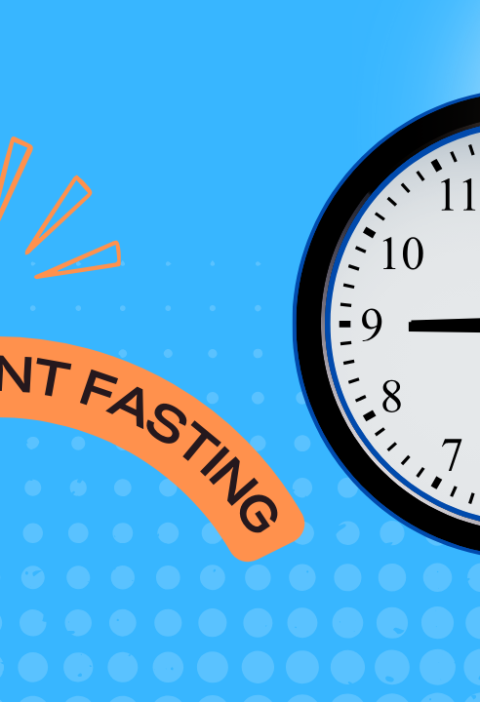We use affiliate links. If you purchase something using one of these links, we may receive compensation or commission.
Fasting has been a practice used by cultures and religions for centuries, but more recently, we’ve begun to understand the significant impact fasting has on health. Personally, I’ve found the science of fasting fascinating, especially how it affects the body at a cellular level. In this post, I’ll share with you what I’ve learned, diving into the research-backed benefits and the work of Dr. Jason Fung, who has become a leading voice in the fasting movement.
What Happens to Our Bodies During Fasting
When we fast, the body goes through several important changes. Typically, our bodies rely on glucose from carbohydrates for energy. When we eat, our insulin levels rise, allowing cells to absorb glucose. However, during fasting, glucose levels drop, and our bodies turn to stored fat as a fuel source. This switch is called ketosis, and it’s one of the major reasons fasting is so effective for fat burning.
Dr. Jason Fung explains this process clearly:
“When you don’t eat, insulin levels drop, signaling your body to start burning stored energy. Blood sugar falls, and your body switches to burning fat.”
(The Complete Guide to Fasting).
This shift not only helps with weight loss but also promotes healing processes in the body. Fasting essentially gives your body time to repair and reset, something I’ve found so interesting as I’ve explored the science behind it.
The Health Benefits of Fasting: What Science Reveals
Several key health benefits come with fasting, many of which have been studied extensively. I want to take a deeper look at some of the most impactful ones:
- Improved Metabolic Health
One of the immediate effects of fasting is a reduction in insulin levels. Insulin plays a critical role in regulating blood sugar, but when we eat frequently, our insulin levels stay elevated. Over time, this can lead to insulin resistance, which is linked to weight gain and type 2 diabetes.
Dr. Fung highlights this in his book:
“The root cause of obesity is high insulin levels, and if you don’t control insulin, you’ll never control your weight.”
(The Obesity Code).
Fasting helps to reset insulin sensitivity by giving our bodies a break from constant food intake, allowing insulin levels to drop and metabolic health to improve. I find this particularly helpful for those who struggle with blood sugar issues or weight management.
- Cellular Repair and Autophagy
One of the most fascinating aspects of fasting is the process of autophagy. When we fast, our cells begin to clean up and recycle damaged parts, promoting cellular repair and renewal. It’s like spring cleaning for our cells!
As Dr. Fung puts it:
“Autophagy is a process where cells break down old parts and reuse the materials. It’s a process that’s essential for staying youthful and disease-free.”
(The Complete Guide to Fasting).
This process is key in protecting against the effects of aging and diseases like cancer. I love the idea that something as simple as fasting can support such a powerful cellular repair process.
- Weight Loss and Fat Burning
Weight loss is one of the most well-known benefits of fasting, but the mechanism behind it is deeper than just cutting calories. By fasting, we allow our bodies to access fat stores that are typically locked away when insulin is high. This makes fasting particularly effective for those dealing with stubborn fat.
Dr. Fung explains:
“It’s not about cutting calories. Fasting works by lowering insulin and allowing your body to access its stored fat. You’re not starving; you’re simply switching fuel sources.”
(The Obesity Code).
This distinction is important—fasting isn’t about deprivation, but about giving the body the opportunity to burn fat instead of relying on glucose from constant meals. For me, this has been a game-changer in understanding how our bodies really work.
- Reduced Inflammation
Inflammation is a silent factor behind many chronic diseases, from heart disease to arthritis. Fasting has been shown to lower levels of inflammatory markers in the body, which is one of the reasons it’s so beneficial for long-term health.
Dr. Fung discusses this in his work:
“Chronic inflammation is at the root of many diseases. Fasting helps to lower inflammation, which can prevent a variety of illnesses.”
(The Complete Guide to Fasting).
This is especially important for those of us looking for ways to support overall wellness and prevent disease in the long run. It’s incredible that something so simple can have such a profound impact on inflammation and health.
Dr. Jason Fung’s Insights on Fasting
I’ve been particularly inspired by Dr. Fung’s work because he brings a practical, science-based approach to fasting. His research focuses on insulin resistance, which he argues is at the heart of many modern health problems like obesity and type 2 diabetes.
In The Obesity Code, Dr. Fung writes:
“The key to weight loss and good health is not about counting calories, but controlling insulin. And fasting is one of the best tools to do that.”
For Dr. Fung, fasting is not just about weight loss, but about improving overall metabolic health. One of the most important things I’ve learned from his work is that it’s not just about what we eat, but when we eat. By giving our bodies breaks from constant food intake, we can allow insulin levels to drop, fat stores to be burned, and overall health to improve.
Dr. Fung emphasizes:
“Fasting is like hitting the reset button on your metabolism. It’s a way to clean up the damage caused by years of overeating and poor eating habits.”
(The Complete Guide to Fasting).
For me, this idea of hitting a metabolic reset button is powerful. Fasting offers a simple yet effective way to improve health without the need for restrictive diets or complex meal plans.
Heal Your Body Through Intermittent, Alternate-Day, and Extended Fasting
Conclusion: Fasting as a Tool for Health and Longevity
Fasting isn’t just a trend—it’s a science-backed method to improve metabolic health, promote fat loss, reduce inflammation, and even support cellular repair through autophagy. Dr. Jason Fung’s research has helped me understand that fasting is not about depriving ourselves, but about giving our bodies the time they need to heal, reset, and function optimally. Whether you’re new to fasting or have tried it before, understanding the science behind it can help you unlock its full potential for your health and well-being.







